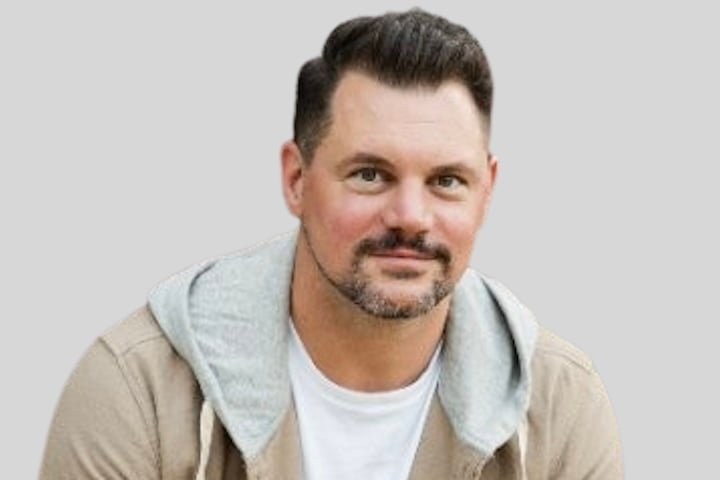Dean Brennan says a diet of beer, pizza, and fast food led to his ulcerative colitis. His doctors diagnosed it years ago in his twenties and told him he’d need medications for life. But Brennan decided otherwise.
“I didn’t want to take lifelong medication,” he told me. “It sparked my passion for health and led me to want to help others.”
Fast forward to 2024, and Brennan is the CEO of Heart & Soil, a nutritional supplement company doing $50 million in annual revenue.
In our recent conversation, he addressed his journey to Heart & Soil, key supplement ingredients, supply chain challenges, and more. The entire audio is embedded below. The transcript is edited for clarity and length.
Eric Bandholz: Give us a rundown of what you do.
Dean Brennan: I’m the CEO of Heart & Soil, a nutritional supplements company. I entered ecommerce in 2020 with no experience, coming from a background in filmmaking.
I got involved with the company from my personal health journey. In my twenties, I was diagnosed with ulcerative colitis, and doctors told me I’d need medication for life. I grew up eating home-cooked, natural foods, although in college I consumed a lot of beer, pizza, and fast food.
I didn’t want to take lifelong medication. It sparked my passion for health and led me to want to help others who suffer from conditions like psoriasis, Crohn’s disease, and eczema.
Heart & Soil offers supplements containing nature-based multivitamins made from bovine organs sourced from regenerative farms, initially in New Zealand and now also from the U.S.
Bandholz: How did you get connected with Heart & Soil?
Brennan: I was aware of Paul Saladino, our founder, but not the company. He’s a board-certified physician and a nutrition specialist. I followed him on social media while experimenting with a carnivore diet. I admired his ability to simplify complex health concepts and share them in an engaging way.
In 2020, I met Paul by chance, along with two employees who are now our chief research officer and head of operations. At the time, the company hadn’t launched, and I offered feedback on its prototype product. Initially, I wasn’t looking for a position in the company, but I was passionate about their mission.
Later that year, after my persistence, Paul brought me on board the day the company launched. I printed shipping labels and prepared the orders. Within three months, I had worked my way into a bigger role.
The team was small then — Paul, me, and three others. We worked out of a rental house in west Austin, packing and shipping supplements ourselves. We grew quickly. Paul realized his expertise was podcasting and researching, not operations. He assigned those responsibilities to me in January 2021.
Bandholz: How did you earn Paul’s trust so quickly?
Brennan: It was a gradual transition. Paul left for a trip to Africa. Then there was a massive ice storm in Austin, and he couldn’t return. Eventually, he went to Costa Rica and decided to stay there, leaving me to run the business. I think he trusted me because I showed up every day, worked hard, and didn’t ask for anything.
The transition was easy. I was nervous about how the team would react, but they were all on board. We’ve worked well together ever since.
Bandholz: How do you spread awareness beyond Paul’s podcast audience?
Brennan: Only about 30% of our customers come from Paul’s audience, with the same percentage coming through word of mouth. Our product works, and we’ve received hundreds of customer success stories. One of our strengths is personalized customer service. Our team of health guides offers one-on-one support, which has led to word-of-mouth referrals. People often tell others about us, even if they haven’t purchased our products themselves.
We also started another podcast called Radical Health Radio, and we’re producing films for YouTube. Our documentary on seed oils will be released next month.
Bandholz: What’s your supply chain like?
Brennan: Our long-term goal is to build a U.S.-based supply chain to produce all the organs needed for our supplements. In 2020, nothing like this existed in the U.S., so we sourced from New Zealand, where regenerative farming is common. But we’ve worked hard over the last four years to develop U.S. suppliers, supporting American farmers.
There’s a huge education gap in the U.S. regarding organ consumption. Around the world, most cultures consume organs regularly. We hope that educating consumers can drive demand for better products and ingredients.
When consumers ask for healthier alternatives, large companies will have to respond. This movement isn’t just about our products but about supporting sustainable farming practices and improving public health.
Bandholz: Where can people buy your supplements and follow you?
Brennan: Our ecommerce site is Heartandsoil.co. You can follow me on X and LinkedIn.




